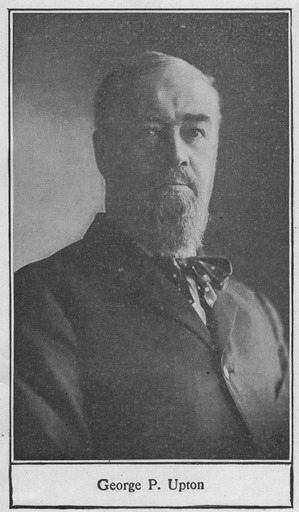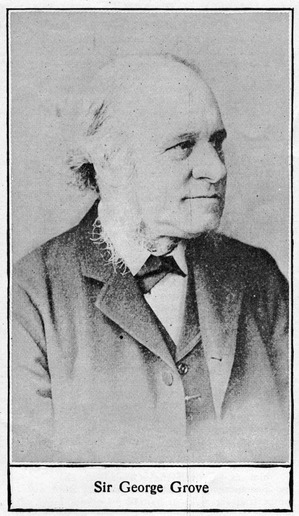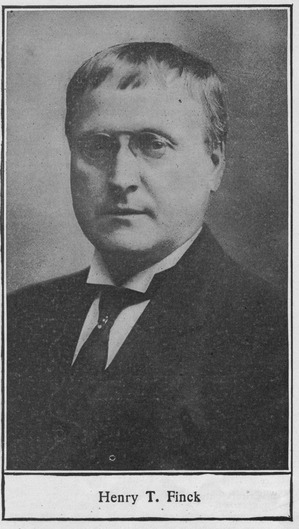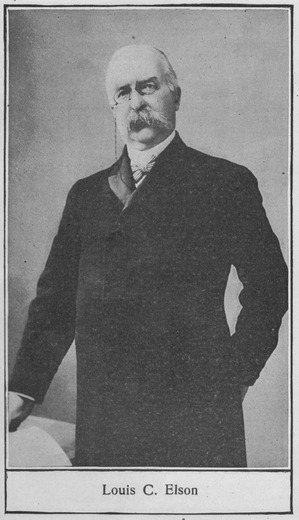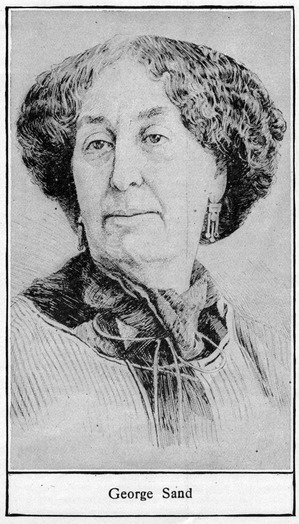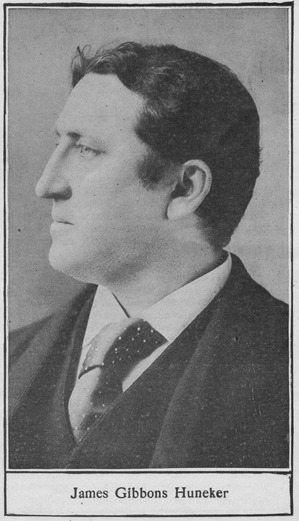Mr. Upton was born in Boston, Mass., October 25, 1834. He was brought up in a musical atmosphere, and possessed a talent for observation. Apart from this he had no regular musical education. He graduated from Brown University in 1854, and removed to Chicago in 1855, where he entered the newspaper world. He served as city editor of the Chicago Journal from 1855 to 1861, and was city editor and war correspondent for the Chicago Tribune, 1862-3, and musical editor of the same paper from 1862 to 1885. In 1872 he became associate editor of this paper until 1905, when he partially retired, though he still retains a connection with the paper. He has thus served for nearly fifty years with the same paper. Like many self-taught musicians who get beyond the initial stages, he has brought to bear on his work an intellect absolutely uninfluenced by any "schools of thought." Such a man could not fail to have a great influence on a growing community like that of Chicago during the past fifty years. His principal works include "Standard Operas," "Standard Oratorios," "Standard Cantatas" and similar works on "Standard Light Operas," "Concert Guide," "Concert Repertory" and "Musical Biographies." Beside these "Standard" works, Mr. Upton has written on "Woman in Music," "Musical Pastels," "Life of Theodore Thomas" and "Life of Remenyi" (in collaboration). He has also made some excellent German translations of biographical material, etc.
Grove was born in Clapham, London, August 13, 1820, and died May 28, 1900, at Sydenham. He was educated at Stockwell, and later at Clapham Grammar School. In 1836 he was articled to an engineer, and qualified in that profession 1839. Ten years later he became Secretary to the Society of Arts, and in this capacity was associated with the promoters of the exhibition at the Crystal Palace. At the same time, he was cooperating with William Smith in a Dictionary of the Bible, and in promoting the Palestine Exploration Fund. His work at the Crystal Palace resulted in the formation of the orchestra under Sir August Manns, for which Grove wrote the analytical programs. In 1867 he went to Vienna with Sullivan, which resulted in the discovery of Schubert's Rosamunde music. In 1873 Grove resigned his position as Secretary of the Crystal Palace, in order to commence his work on the famous Dictionary of Music and Musicians. In 1878 he visited America, but returned home the following year to bring out the first volume of the dictionary. In 1881 he was called in to help found the Royal Academy of Music, of which he was afterwards made director. Grove was knighted in 1883. His work as annotator, critic, teacher, organizer and author on musical subjects can never be fully appreciated. He was also an authority on literature and on Biblical matters. Browning spoke of him as "Grove, the Orientalist, the Schubertian, the Literate in ordinary and extraordinary."
Mr. Finck was born at Bethel, Mo., September 22, 1854, and was brought up in Oregon. In 1872 he went to Harvard with the intention of becoming a physician, but took up the study of psychology instead, and at the same time studied music with Professor John Knowles Paine. In 1876 he graduated with the highest honors in psychology, and gained the Harris Fellowship, which enabled him to continue his studies in Germany. Here his interest in music was fully maintained, and he was fortunate enough to be able to attend the first Bayreuth festival. He frequently wrote from Europe to American papers on musical subjects, and this led to his being appointed to the editorial staff of the Nation and of the Evening Post. In this capacity he has remained ever since, contributing valuable articles and criticisms on musical subjects. Mr. Finck believes that one of the main functions of a music critic is to champion the cause of musicians whose work is in danger of being neglected. He was one of the pioneers in the Wagner movement, and has lived to see the Wagnerian supremacy over more trivial operatic forms. Among his books may be mentioned "Romantic Love and Personal Beauty," "Lotos Time in Japan," etc. His more recent musical works include "Grieg and His Music," "Success in Music, and How It is Won," and "Massenet and His Operas," while readers will recall his "Songs and Song Writers" and "Chopin and Other Musical Essays."
Mr. Elson was born in Boston, April 17, 1848. He studied in America and in Europe, among his teachers being August Hamann, August Kreissman (the German Lieder-singer) and Carl Gloggner-Castelli, of Leipsic. Mr. Elson's musical efforts have mainly been devoted to teaching, lecturing, and to writing on musical subjects. He became head of the Musical Theory Department of the New England Conservatory in 1882, and has retained that position ever since. He has lectured at Tulane University, University of Pennsylvania, Vassar, Harvard, Cornell, etc. He was twice called to give a series of lectures (eighteen in all) at the Lowell Institute, in Boston, and has, of course, addressed many similar educational institutions and art clubs. He has contributed very largely to current musical journals and encyclopedias of the best kind, and since 1880 has been musical critic to the Boston Advertiser. His larger literary work include "Curiosities of Music," "The History of German Song," "The Theory of Music," "The Realm of Music," "National Music of America and Its Sources," "Great Composers," Shakespeare in Music," (sic) and the delightful "European Reminiscences." His latest book is "Mistakes in Music and Music Teaching." His son Arthur is a well-known musical critic and writer. Together they have played a very significant part in giving fair-minded recognition to women in music. Mr. Elson has a keen sense of humor and a kindly heart.
Mme. Dudevant, better known as George Sand, was born in Paris, July 5, 1804, and died at Nohant, Berri, June 7, 1876. Her maiden name was Amantine Cucile Aurora Dupin. Her early days were spent in running wild around the Chateau of Nohant, mostly under the care of her grandmother, a great admirer of Rousseau and Voltaire, who was constantly disputing with her own daughter about the child's education. The years 1817 to 1820 were spent at the English Augustine School in Paris, where George Sand received the major part of her education. In 1822 her parents obliged her to marry M. Dudevant, the son of an officer and baron of the empire, but this marriage was very unhappy, and George Sand left her husband in 1831. She removed to Paris, and commenced to work for a living, at first by painting fancy articles, such as cigar cases, but eventually took to writing books, in company with a man named Sandeau. She published a novel of her own, entitled "Indiana," under the pseudonym "George Sand," and this attracted wide attention. She quickly became the centre of a little coterie of artists and musicians, chief among whom were Alfred de Musset, the poet, and Chopin. She wrote many novels, but the only one read very much nowadays is "Consuelo," in which Chopin figures. She exercised a very great influence upon all who came in contact with her magnetic personality, and on none more than on the Polish genius.
Mr. Huneker was born in Philadelphia, Pa., and was educated at Roth's Mill, from which he graduated in 1873. He then proceeded to the study of law in Philadelphia, but also became a pupil of Michael Cross, with whom he studied the piano. In 1878 Mr. Huneker went to Paris, where he studied the piano with Theo. Ritter, and theory with Leopold Doutreleau, Two years later he returned to America, and became associated with Raphael Joseffy at the National Conservatory of Music, in New York. He continued this valuable educational work for ten years. From 1891 to 1895 Mr. Huneker acted as music and dramatic critic to the New York Recorder, after which he became associated in a similar capacity with the Morning Advertiser until 1897. He has also acted as musical and dramatic editor of the New York Sun. It is, however, as an author of books on musical subjects and as a contributor to musical magazines that Mr. Huneker is best known. His mordant wit and keen analytical powers have made him a very potent force for good in the musical world of to-day. Among his best-known works may be mentioned "Mezzotints in Modern Music," "Chopin, the Man, and His Music," "Melomaniacs," "Overtones," "Iconoclasts," "A Book of Dramatists," "Visionaries" and "Promenades of an Impressionist." Mr. Huneker has also contributed to most of the current journals which deal with musical and artistic subjects. His valuable services to The Etude have been much appreciated.
How To Preserve These Portrait-Biographies
Cut out the pictures, following outline on the reverse of this page. Paste them on margin in a scrap-book, or on the fly-sheet of a piece of music by the composer represented, or use on bulletin board for class, club, or school work. A similar collection could only be obtained by purchasing several expensive books of reference and separate portraits. This is the 11th set of picture-biographies in the new series, which commenced in January, and included portraits and life-stories of Hofmann, Anton Rubinstein, von Fielitz, Sullivan, Liza Lehmann, Vieuxtemps, Franck, Wagner, Siegfried Wagner, Dancla, Gadski, Johann Strauss, Paganini, Bach, Paderewski, Foote, Bloomfield-Zeisler, Max Reger, Sauer, Mendelssohn, Balfe, Smetana, Marchesi, Hans Sitt, Corey, Mahler, Thalberg, Herbert, Holmes, Dreyschock, Joseffy, Chopin, Spiering, Caruso, Jenny Lind, Offenbach, Rheinberger, Brahms, Lachner, Damrosch, Destinn, Burmester, Thomas, Paine, Rogers, Damrosch, Beach, Foster, DeKoven, Rimsky-Korsakoff, Sousa, Marteau, Chaminade, Faure. The series published last year is now obtainable in book-form.


